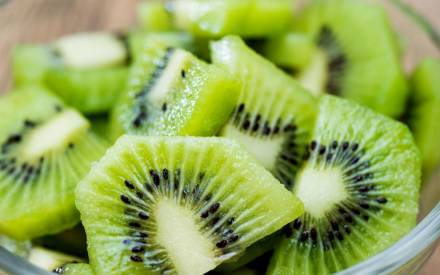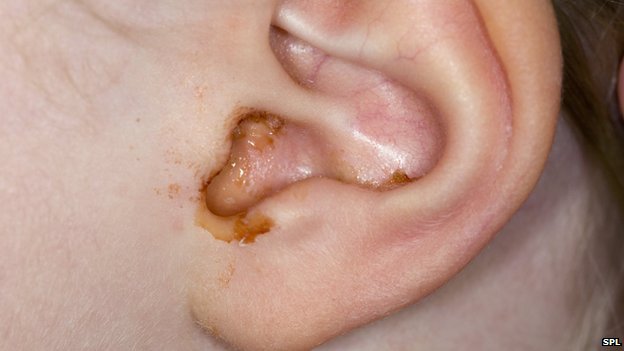Connect with a verified veterinarian in minutes. Licensed vets are available 24/7 to answer your questions. No need to worry about your furry family member.
Kiwi has fast become a favorite fruit for many pet parents. And why not? This is a yummy summer fruit, which has plenty of nutrients, too! But what happens if a dog eats kiwi? Will kiwi make a dog sick?
In this article, we’ll take a quick look at the kiwi and then whether or not this fruit can make a dog sick. Let’s get started!
What is Kiwi?
Kiwis are a small, green fruit that can be enjoyed in various ways. These fruits are popular to use frozen, dried, or fresh. In addition, they can be combined with other fruits to create a refreshing dessert or snack.
Kiwi fruits are packed with nutrients, which is what makes them so healthy. They include plenty of vitamins and minerals, including:
- Calcium
- Vitamin C
- Vitamin E
- Vitamin K
- Magnesium
- Vitamin A
- Folate
- Potassium
- Antioxidants
Not only are kiwis packed with nutrition, but they carry many health benefits, too! They’re said to improve asthma and other respiratory problems, help digestion, lower blood pressure, improve heart health, and more.
The water content in kiwis means they’re also great for hydration. Kiwi berries can also be low-calorie and low-fat, making them a healthy snack option for those looking to reduce their calorie intake. However, sensitive stomachs may want to avoid kiwis if they’re prone to gastritis or other stomach issues.
For your dog’s regular diet, consider feeding them kiwis only as a treat. They make a great addition to a healthy diet and can provide your pet with many health benefits. Don’t overfeed your dog kiwis, though – too many can be harmful. Your dog’s digestive system is different from ours, so be sure to monitor their intake. A dog’s stomach is not as efficient at breaking down fruits as a human’s, so they can get sick from eating too many. Some health issues that can occur from overindulging in kiwis include vomiting, diarrhea, and bloating.
Kiwi Skin and Fruits
The skin of the kiwi fruit is a rich source of vitamins, minerals, and antioxidants. The skin also contains vitamin C, which is important for the immune system. The skin can be eaten fresh or used in cooking.
As mentioned, kiwis are a good source of vitamin C and dietary fiber. They also contain potassium, vitamin B6, and vitamin E. Kiwis are low in calories and have no cholesterol. Bite-sized pieces of the kiwi fruit can be eaten as a snack.
But are kiwis OK for dogs to eat? Can kiwi make a dog sick?

Review symptoms, medications & behavior to keep your pets healthy with a Vet Online in just minutes.
Ask a Vet Live NowKiwi & Dogs
Kiwis can be enjoyed by dogs; however, they can be dangerous if eaten whole. A whole kiwi could become lodged in a dog’s throat, blocking his airways. So, if you share a kiwi with your canine companion, be sure to cut off a small bite that your furry friend can easily swallow.
Another problem a kiwi could cause is diarrhea. The outer skin of the kiwi is tough and contains high levels of fiber. Fiber is great because it helps food pass through quickly in the intestines. It can also relieve constipation. However, if a dog has too much fiber, there’s a high probability he could develop some serious diarrhea. For this reason, be sure to remove the skin of the kiwi before sharing the fruit with your dog.
While kiwis are healthy for humans, you won’t get the same health benefits from eating this fruit. That’s because dogs have different nutritional needs than we do. Having said that, it’s OK to share a little bit of kiwi with your fur baby once in a while. Think of kiwi as a healthy, rare treat for your dog.
Kiwi seeds are also a healthy addition to your dog’s diet. These seeds are high in fiber and have a number of other health benefits, such as helping to regulate blood sugar levels and providing antioxidant protection. However, as with all seeds, be sure to process them properly before giving them to your dog.
One more note—it’s always best to check with your vet before sharing a new food with your dog. This is because some dogs can be sensitive or even allergic to some foods. This way, you can avoid causing a digestive problem or an allergic reaction when sharing food with your dog!
So, is kiwi good for dogs?
The short answer is yes.
Some dog breeds are known to be good with Kiwis, while others may not be as fond of the fruit. If you have a dog that is hesitant to try Kiwis, try presenting them with a small piece first. If they still don’t seem interested, you can always give them a Kiwi as an occasional treat later on.
The nutritional benefits of kiwis for dogs are still being studied, but some preliminary research suggests that they may be beneficial. For example, kiwis are high in vitamin C, which is important for dogs’ immune systems. Additionally, they contain potassium, which can help regulate blood pressure and help keep bones healthy. However, there is still some research to be done before we know for sure whether kiwis are good for dogs in general.
While kiwis are good for dogs, be sure to be careful about choking hazards. If your dog tries to eat a whole kiwi, be sure to cut it into small pieces for him to easily swallow. A whole kiwi can become lodged in a dog’s throat, blocking his airways. So, if you share a kiwi with your canine companion, be sure to cut off a small bite that your dog can easily swallow. The choking risks are minimal, but if your dog does manage to eat a whole kiwi, be sure to call your veterinarian immediately.
The digestive system of a dog is not as efficient as that of a human, so it may take your dog a little longer to digest kiwis. If you are concerned about your dog’s health and want to ensure that he is getting the most nutritional value from the kiwi, feed them in moderation. Feeding your dog too many kiwis can cause diarrhea or other digestive problems. It might cause an upset stomach and blood clotting problems in dogs with certain health conditions. First time dog owners should take care of the digestive tract of their dog by feeding them healthy, nutritious foods.
The Side Effects of Kiwi for Dogs
Large quantities of kiwi can be harmful to your dog’s health. These fruits are high in sugar and can cause obesity, diabetes, and other health problems in your dog. Here are some other side effects of kiwi for dogs:
1. Digestive problems
The actinidin and quercetin in kiwi can cause digestive problems in dogs. These ingredients can upset the stomach and cause vomiting, diarrhea, and other issues. While actinidin and quercetin are beneficial to humans, they can be harmful to dogs.
2. Allergic reactions
Some dogs may experience an allergic reaction to kiwi. This reaction can include hives, difficulty breathing, and even anaphylactic shock. If your dog experiences any of these symptoms after eating kiwi, seek medical attention.
3. Unhealthy skin and hair
Kiwi can cause unhealthy skin and hair in dogs. These fruits are high in sugar and can lead to dry skin, excess oil production, and frizzy hair. If you notice any of these problems in your dog, take them to the veterinarian for treatment.
4. Obesity
Kiwi can be a major contributor to obesity in dogs. These fruits are high in sugar and can cause your dog to gain weight quickly. But the high fiber content of kiwi can also cause problems with digestion. If your dog is overweight, try to limit their intake of kiwi to only occasional servings.
5. Tooth decay
Kiwi can be a major contributor to tooth decay in dogs. These fruits are high in sugar and can cause plaque and tartar to form on your dog’s teeth.
Kiwi as Human Food and as Dog Food
Kiwis are a human food that can be enjoyed fresh, frozen, or dried. They can also be combined with other fruits to create a refreshing dessert or snack. Kiwis are not recommended for dogs as a primary food source. Dogs are not as efficient as humans when it comes to digesting kiwis, and they can cause digestive problems if fed in excess.
Insoluble fiber is a type of carbohydrate that can be difficult for dogs to digest. Kiwis are high in insoluble fiber, which can lead to digestive problems if fed in excess. Additionally, kiwis are high in sugar, which can also be problematic for dogs. The enzyme in dogs that helps them digest sugar is not as effective when eating kiwis, which can lead to weight gain and other health problems. However, a piece of kiwi fruit is about the size of a small apple, so it is not easy for a dog to overeat.
Small dogs that are not prone to weight gain may be able to enjoy a small piece of kiwi fruit as a snack. Older dogs or those with health problems should not eat large amounts of kiwi fruit, as it can be harmful.
You can make a variety of dishes with kiwis as human food. These include kiwi fruit smoothies, baked goods, and salads. You can also give your dog kiwi as a snack or as part of their diet. Kiwis are a good source of vitamin C, vitamin K, and dietary fiber. They are also a good source of potassium and manganese. In addition, they provide your dog with essential fatty acids and vitamins B6 and B12.
For your pooch, you can make a homemade kiwi dog food. This will include kiwi fruit, fresh or frozen vegetables, and a small amount of grain. You can also give your dog kiwi treats made from fresh or frozen kiwis. However, be sure to monitor your dog’s intake of kiwis as they can be high in sugar.
Beta carotene is another important nutrient in kiwis. This pigment is found in the skin, pulp, and seeds of kiwis. It is important for your dog’s health because it helps to prevent cancer and heart disease. Although, blockage of the kiwi’s small intestine can occur if your dog consumes too many of these fruits.
Connect with a verified veterinarian in minutes. Licensed vets are available 24/7 to answer your questions. No need to worry about your furry family member.

Kim
Kim is a talented author, who loves animals especially dogs. She engaged in writing books and articles relating to animals a decade ago. Kim resides in Chicago with her husband and son. The family is the proud owner of a dog and a parrot (Jack and Lily). Kim wanted more than these two pets, but her husband put his foot down... She often visits elementary schools to talk to the kids about what she learned about pets and how they could learn from them.
Review symptoms, medications & behavior to keep your pets healthy with a Vet Online in just minutes.
Ask a Vet Live Now





